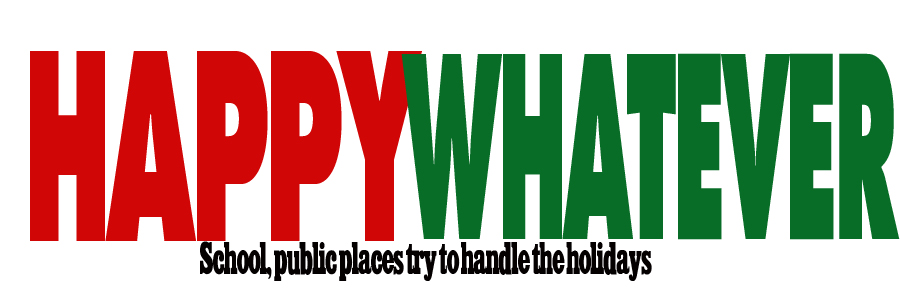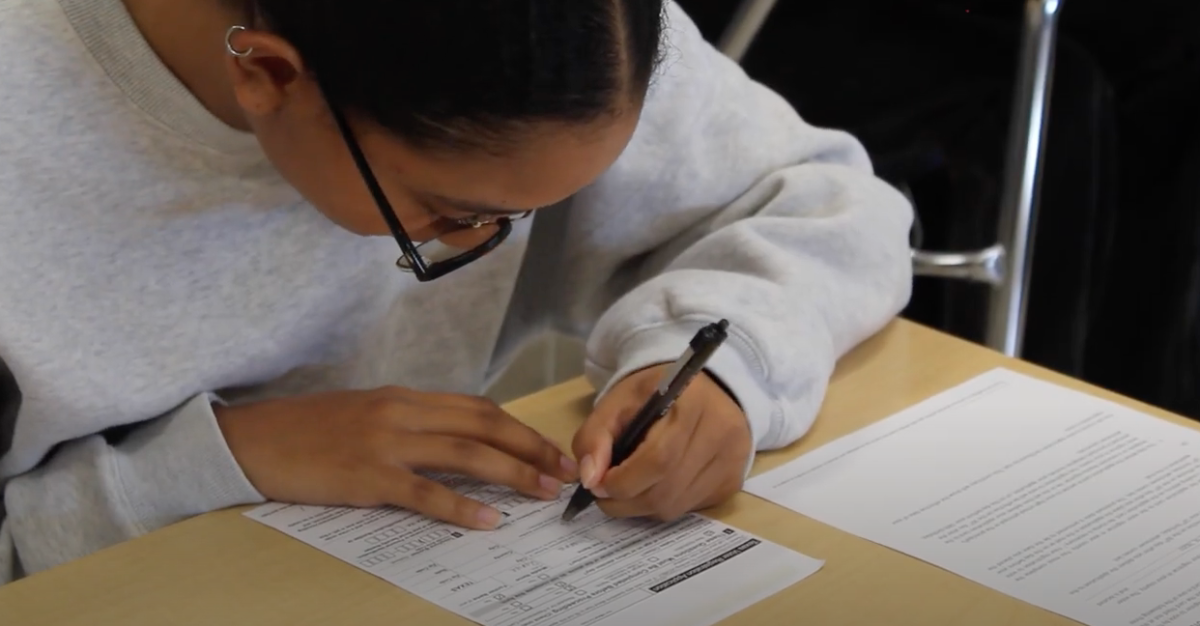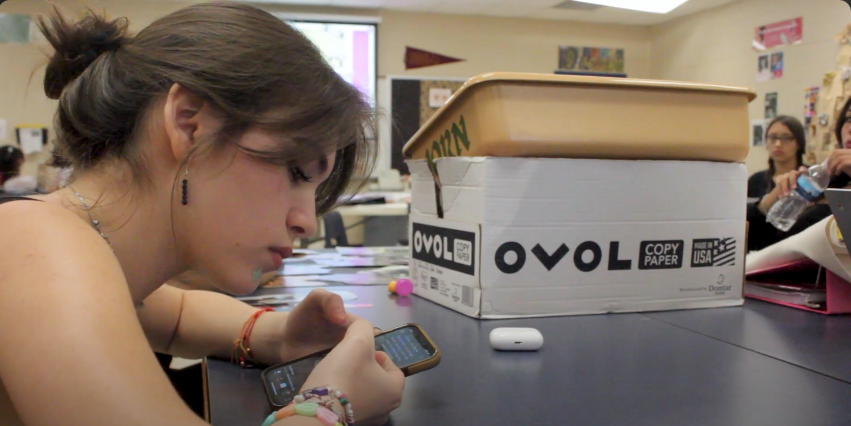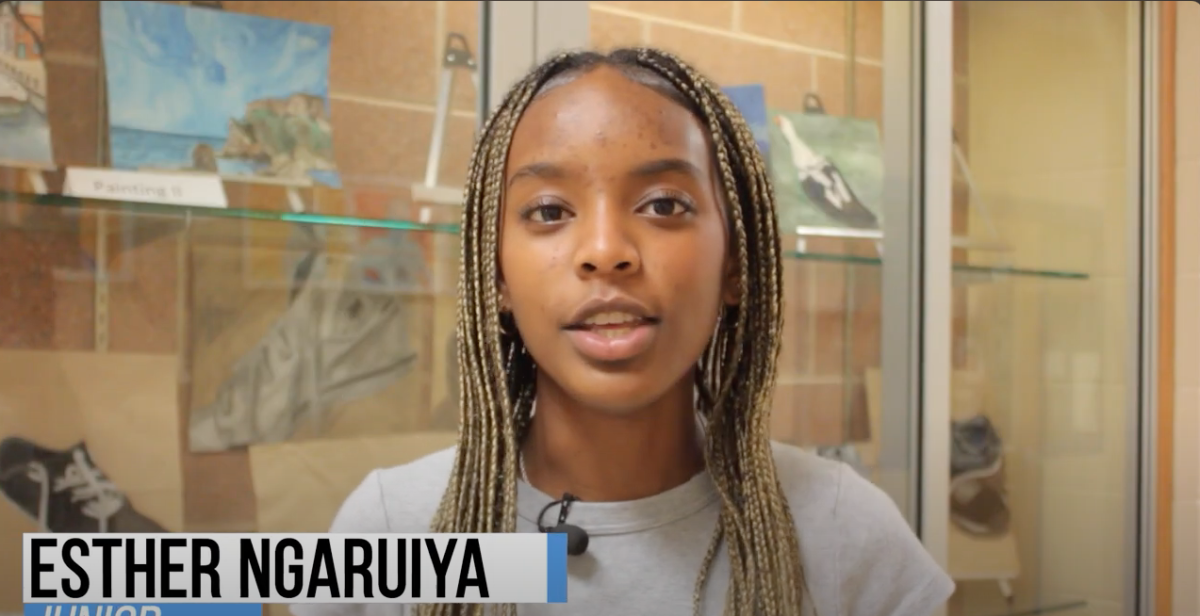by Madelyn Carter |Editor-in-chief
Step foot on a public school campus during the winter season and there may be “holiday trees” in classes, a “tacky holiday sweater” day, or a teacher asking to play “holiday music.” It seems that there’s a certain word missing, a certain popular phrase that the public school system doesn’t like to touch:
Christmas.
“The idea is to keep everything as neutral as possible,” Principal John Melbrach said.

While it is true that “Christmas tree,” “tacky Christmas sweater,” and “Christmas music” are more commonly used than the replacement of “holiday,” public schools mask Christmas because of its interpretation of separation of church and state.
“Because we are a publicly funded institution, we are funded by taxpayers and there are always students at school, especially [a school] as diverse as Johnson, that aren’t Christian or don’t celebrate Christmas, and we as employees just want to stay as neutral as possible,” world history teacher Justin Felux said.
“We have to be careful on any kind of religious connotation that may give the impression that we favor one side over the other,” Melbrech stated.
While one reason to mum Christmas is to protect students, that reasoning is not wholly appreciated.
“I think this [political correctness] is stupid because its freedom of religion and freedom of speech and if you want to say ‘Merry Christmas’, you should say it,” senior Madison Gordon said. “If you’re Jewish, say ‘Happy Hanukkah’. Nobody cares, it’s your religion, no one’s gonna say anything.”
Junior, and president of the school’s Liberals Club, Max Fang agrees with Gordon.
“I think [political correctness] is overdone. As far as I’ve seen, there hasn’t been any real issue with saying the word Christmas. It’s so taboo to say that word and for the sake of political correctness, we’re making a big deal out of something that shouldn’t be.”
This idea that public schools, being owned and operated by the government, cannot allow Christmas to be used in its normal context, is a certain interpretation of Jefferson’s idea in that church cannot touch the state.
“I think we’ve reinterpreted what the meaning of [separation of church and state] is. Because, quite frankly, this was founded as a Christian country, the idea of freedom of speech is that the government, the President of the United States, can’t come out and say ‘This is our national religion.’ But we’ve twisted it so that now we say that our government can’t even mention a religion,” Melbrech said.
Felux doesn’t really mind his restrictions of speech in the workplace.
“We as public employees can’t say [religious holiday greetings] because of the fact that we are funded by taxpayers. This [restriction] applies to all political things. I can’t come into class and endorse a particular political candidate, my speech is limited by that fact that I’m a teacher and I work for the government. It is what it is.”
When asked if he’s ever been offended by a holiday greeting of a religion that is not his own, junior Fang defends the greeting, of whatever religion, as being in good intention.
“The people that really object to these religious messages are the ones who are the radicals and extremists. The majority people know that it’s not anything malicious.”
In retrospect to the rest of the world, these restrictions of faculty member’s freedom of speech are dismal to those of regular citizens in some nations.
“There are countries where they do put you in jail, or kill you because of what you believe,” Melbrech said. “We grow up in the best country in the world.”
Yet, this ‘war on Christmas’ seems to resurface every year in America in an attempt to enact neutrality and create an inoffensive utopia.
“It was always Christmas to me and it always will be, things just get a little bit on the ridiculous side,” Melbrech said. “But we have to respect the laws and other peoples feelings. “Publically it’s winter break, but privately it’s Christmas break.”









Cathy • Feb 5, 2013 at 11:13 pm
Sorry for the late post! Yet another fantastic article my Madelyn Carter! Thanks for touching on the “touchy” subjects.
L Michael R • Jan 11, 2013 at 11:33 am
Hey, I enjoyed the article, it was written very well, but I want to know something. Have people always been this sensitive and easily offended, or what? Has it occurred over time, and people just kept it hidden at first?
Allie Gerner • Dec 20, 2012 at 12:49 pm
Great article Madelyn Carter!!